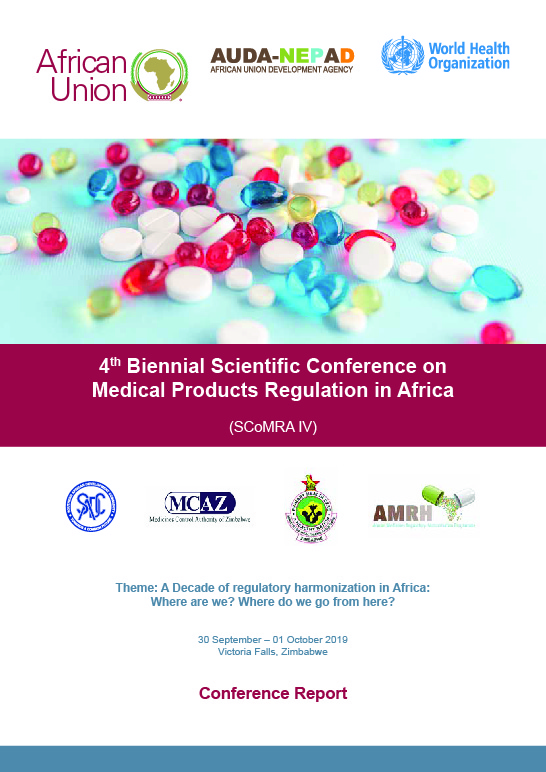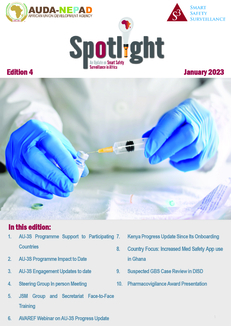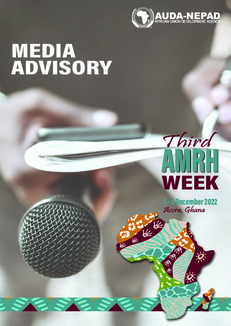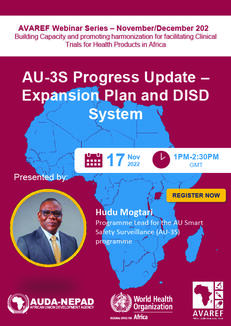Products Regulation in Africa (SCoMRA) brings together in an exciting and unique way the international regulatory community focused on improving public health utcomes in Africa. We were thrilled to have organized this fourth SCoMRA – held in Victoria Falls, Zimbabwe in October 2019 - which marked a decade of regulatory harmonization in Africa and brought together the participants from all over Africa and across the globe to discuss the progress on the continent during this time. The success of any conference depends on the active participation of the people who attended and we therefore thank each person who made the time to attend, present and discuss the content, whether as a delegate or as a sponsoring partner. Regulation of medical products today requires, more than ever, a multi-disciplinary, multi-country, partnership based approach. No single agency can work alone to cover the full range of regulatory functions that are needed to provide a comprehensive basket of essential medicines to a country and its people. At SCoMRA IV, by bringing together practitioners from all over Africa and beyond, we have continued to create and develop a platform for achieving our ultimate goal: equitable access to essential medicines. We are all members of an important cadre of professionals who care passionately about patients and the attainment of health and well-being for all. No matter which country we come from, our challenges are similar. Through the multiple high quality presentations that were delivered and the social events, the conference always brings an optimism and confidence that lifts the spirits of those working
hard to strengthen regulatory systems and focuses minds on the longer-term strategic opportunities that await the continent.
Among those opportunities are the development of a continentwide regulatory body – an African Medicines Agency or AMA - to support and advance the regional efforts that have evolved within the African Medicines Regulatory Harmonization initiative (AMRH). This was set out in the AMA Treaty that was endorsed by all members of the African Union.
At SCoMRA IV, drawing on what we have learned over the last decade of regional regulatory harmonization in Africa, we endeavoured to bring that evolving vision of the AMA to its stakeholders, who will be its life-blood both on the demand and the supply sides. We aimed too to listen to feedback about this vision and about how the AMRH should evolve to support countries and regions in their efforts. More than ever before, we have been able to debate some of the solutions to ongoing challenges in medical products regulation, and how a continental agency could realistically address these. Taking part in the event gave participants from thirty seven countries a truly unique opportunity to share ideas and lessons learned and improve the way in which they take forward regulatory systems strengthening. Houda Langar (WHO AFRO) and Diadie Maiga (WHO EMRO) summarized the key recommendations coming out of the conference, as follows:
-
NMRAs, RECs and Partners should facilitate collaboration between regulators, researchers, academia and the industry with a view to improve capacity for regulation of medical products and drug discovery on the continent.
-
NMRAs and RECs should strengthen regional collaboration on pre-and post-marketing safety and quality surveillance (PMS) programs for promotion of patient safety and the fight against sub-standard and falsified (SF) medicines.
-
NMRAs and RECs should improve regulatory review processes for marketing authorization and clinical trials by employing tools such as the eCTD/ harmonised CTD/ eCTD and measure the function of these in order to make ongoing improvements by using tools such as the WHO Global Benchmarking Tool (GBT), AMRH Indicators and Optimising Efficiency in Regulatory Science (OpERA) Program. These will support consistency, efficiency, transparency and predictability.
-
NMRAs, RECs and Partners should develop business case and advocate for investment in regulatory systems strengthening, harmonization and convergence to sustain the AMRH efforts as a foundation of the African Medicines Agency.
-
NMRAs and RECs should adopt and adapt the Global Curriculum and competency framework by learning from countries that are already utilizing it with a view to ensure production of credible and reliable regulatory workforce in Africa.




